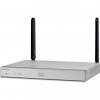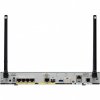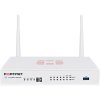I would really appreciate the communities advice. I have been a BT customer for about a decade, and I am currently on BT Superfast Broadband (FTTC) and found the Smart Hub (and previously the Home Hub) to be unreliable so have been using my trusted Cisco 887 workhorse for many years, however it is getting on a bit, and I want to upgrade to something more feature rich.
I am looking for buying advice for an all in one router that can do the most if not all of the following (in order of priority):
Thanks in advance
I am looking for buying advice for an all in one router that can do the most if not all of the following (in order of priority):
- Stability
- Supports Site-to-Site VPN (in both directions) so I can extend my lab to the public cloud
- Minimum 4 x Gigabit Ethernet ports
- DMZ with port forwarding
- Multiple SSID
- VLANs
- 2.4 and 5Ghz Wifi 802.11a/b/g/n/ac
- SSL or OpenVPN (VPN Server and Client)
- Malware and spam protection
- 4G Backup (USB or Sim)
- Guest Wifi
- DDNS
- Smart Phone App
Thanks in advance





